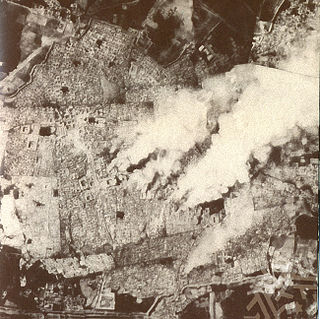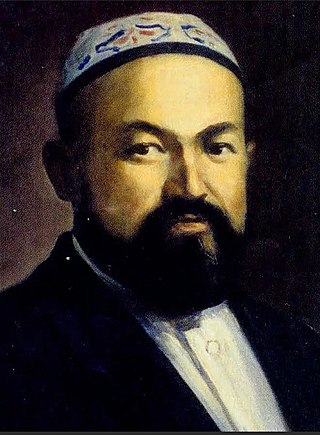
The Basmachi movement was an uprising against Russian Imperial and Soviet rule in Central Asia by rebel groups inspired by Islamic beliefs.

Islam is the dominant religion in Uzbekistan. Islamic customs were broadly adopted by the ruling elite, and they began patronage of scholars and conquerors such as Muhammad al-Bukhari, Al-Tirmidhi, Ismail Samani, al-Biruni, Avicenna, Tamerlane, Ulugh Begh, and Babur. Despite its predominance and history, the practice of Islam has been far from monolithic since the establishment of the Uzbek Soviet Socialist Republic. Many versions of the faith have been practiced in today's Republic of Uzbekistan. Most of them stray far from conventional Islamic tradition and law, and practice a far more relaxed approach. Heavily authoritarian interpretations of the Qur’an, including Shariah Law, as seen in parts of the Middle East, are almost unheard of in Uzbekistan. There are also traditions from the Zoroastrian era which are still practiced, before the introduction of Islam to the country.

Russian Turkestan was the western part of Turkestan within the Russian Empire’s Central Asian territories, and was administered as a Krai or Governor-Generalship. It comprised the oasis region to the south of the Kazakh Steppe, but not the protectorates of the Emirate of Bukhara and the Khanate of Khiva. It was populated by speakers of Russian, Uzbek, Kazakh, Kyrgyz, and Tajik.

The Turkestan Autonomous Soviet Socialist Republic, originally called the Turkestan Socialist Federative Republic, was an autonomous republic of the Russian Soviet Federative Socialist Republic located in Soviet Central Asia. Uzbeks were the preeminent nation of the Turkestan ASSR. Tashkent was the capital and largest city in the region.

This article discusses the administrative-territorial division of the Republic of Uzbekistan. The Article 68 of the constitution of Uzbekistan defines:
The Republic of Uzbekistan shall consist of regions, districts, cities, towns, settlements, kishlaks and auls (villages) in Uzbekistan and the Republic of Karakalpakstan.
The Jadids were Muslim modernist reformers within the Russian Empire in the late 19th and early 20th century. They normally referred to themselves by the Turkic terms Taraqqiparvarlar ('progressives'), Ziyalilar ('intellectuals') or simply Yäşlär/Yoshlar ('youth'). Jadid movement advocated for an Islamic social and cultural reformation through the revival of pristine Islamic teachings; while simultaneously engaging with modernity. Jadids maintained that Turks in the Russian Empire had entered a period of decay that could only be rectified by the acquisition of a new kind of knowledge and modernist, European-modeled cultural reform.

The Mountainous Republic of the Northern Caucasus (MRNC), also referred to as the United Republics of the North Caucasus, Mountain Republic, or the Republic of the Mountaineers, was a state in Eurasia and encompassing the entirety of the North Caucasus that emerged during the Russian Civil War and existed from 1917 to 1922. It formed as a consolidation of various Caucasian ethnic groups, including the Circassians, Chechens, Karachays, Ossetians, Balkars, Ingush, and Dagestanis.

Soviet Central Asia was the part of Central Asia administered by the Soviet Union between 1918 and 1991, when the Central Asian republics declared independence. It is nearly synonymous with Russian Turkestan in the Russian Empire. Soviet Central Asia went through many territorial divisions before the current borders were created in the 1920s and 1930s.

Mustafa bek Shokay was a Kazakh social and political activist and ideologue of the Turkestan Autonomy. From 1921, he lived in exile in France.

Hamza Hakimzade Niyazi was an Uzbek author, composer, playwright, poet, scholar, teacher, and political activist. Niyazi is widely seen as one of the leading figures in the early development of modern Uzbek literary tradition. He is generally considered the first Uzbek playwright, the founder of modern Uzbek musical forms, as well as the founder of Uzbek social realism. During the Russian revolution, he strongly supported the Bolsheviks, as they strongly opposed the system of feudal rule that was prevalent in much of Central Asia. He was one of the first Uzbeks to join the Communist Party and dedicated his life to promoting literacy and education in his homeland, opening schools and orphanages.

The Tashkent Soviet was a public organisation set up in Tashkent during the Russian Revolution. It was established on 2 March 1917 at an inaugural meeting that consisted of thirty five workers from the Central Asian Railway. It was headed by a technician named I. I. Bel'kov. The following day, there was a meeting in the local Duma which set up an Executive Committee of Public Organisations to manage the "sociopolitical and economic life of the city".

The Ministry of Communications of the Union of Soviet Socialist Republics (USSR) (Russian: Министерство связи СССР) was the central state administration body on communications in the Soviet Union from 1923 to 1991. During its existence it had three names: People's Commissariat for Posts and Telegraphs (1923–32), People's Commissariat for Communications (1932–46) and Ministry of Communications (1946–1991). It had authority over the postal, telegraph and telephone communications as well as public radio, technical means of radio and television broadcasting, and the distribution of periodicals in the country.

Munawwar Qari Abdurrashidkhan ogli was a leading Jadidist of late Tsarist Turkestan. Like other Jadids, Munnawwar Qari worked as author, poet, teacher, journalist and in other occupations.

Vsevolod Ivanovich Romanovsky was a Russian, Soviet and Uzbek mathematician, founder of the Tashkent school of mathematics.
Pūl was a historical Russian currency that circulated in Russian Turkestan. Pūls were used in Golden Horde, Afghanistan, Bukhara, Chagatai Khanate, Kokand Khanate, Dzungar Khanate, and other Eurasian principalities, it was a copper coin of very small denomination, 1/60 of an altyn.

The Turkestan Autonomy or Kokand Autonomy was a short-lived state in Central Asia that existed at the beginning of the Russian Civil War. It was formed on 27 November 1917 and existed until 22 February 1918. It was a secular republic, headed by a president.
The 1st Army was a field army of the Red Army during the Russian Civil War. The 1st Army was formed twice. The first formation was between the beginning of March 1918 and May as a reaction to the Austro-German occupation of Ukraine. The second formation was created on June 19, 1918, as a part of the Eastern Front and from August 15, 1919 as a part of the Turkestan Front. The Army was disbanded in January 1921.
The Bukharan Revolution refers to the events of 1917–1925, which led to the elimination of the Emirate of Bukhara in 1920, the formation of the Bukharan People's Soviet Republic, the intervention of the Red Army, the mass armed resistance of the population, suppression of Basmachi, the inclusion of Bukhara People’s Soviet Republic into the Soviet Union on September 19, 1924, as a separate union republic, the elimination of the newly established republic as a result of national disengagement and the formation of the Uzbek SSR, the Turkmen SSR and Tajik ASSR in 1924.
The Central Bureau of the German Sections of the Central Committee of the Russian Communist Party (Bolsheviks) (German: Zentralbüro der deutschen Sektionen beim Zentralkomitee der Kommunistischen Partei Rußlands (Bolschewiki)) was a structure within the organization of the Bolshevik Party, coordinating the activities of ethnic German sections of the party.

Muhitdin Qoriyoqubov was an Uzbek baritone singer and one of the first Uzbek folksingers. A co-founder of the Muslim Youth Dance Troupe along with Hamza Hakimzade Niyazi in 1918, he became a major player in the development of the early music and theater scene of the Uzbek SSR.















